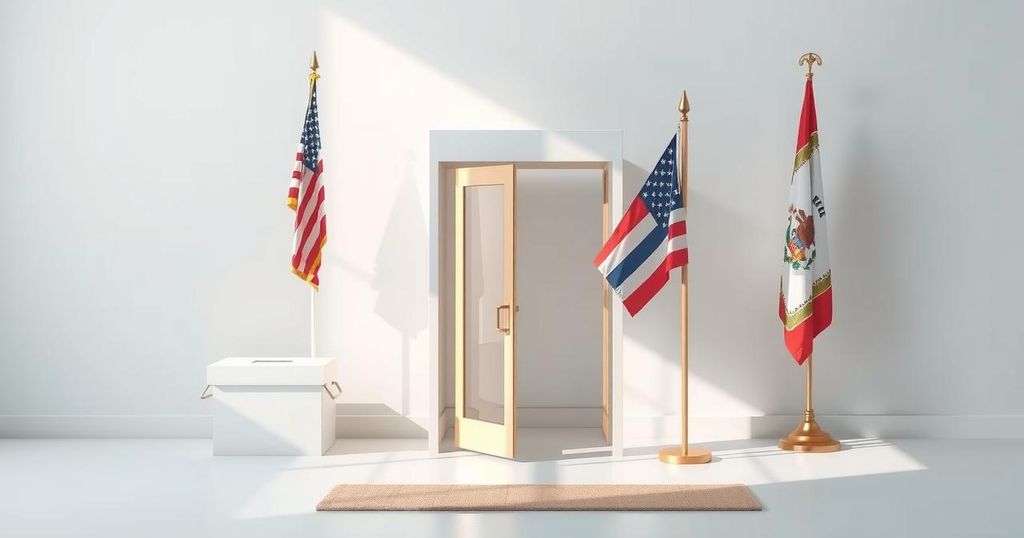Ecuador’s presidential runoff pits incumbent Daniel Noboa against progressive Luisa González following a tight first round of voting. Noboa represents neoliberal interests while González advocates for social funding. The polarized electoral landscape reflects enduring societal tensions as both candidates face pressing national challenges amidst high public expectations.
On February 9, 2025, Ecuadorians participated in a presidential election where incumbent Daniel Noboa and progressive candidate Luisa González will face each other in a runoff scheduled for April. Both candidates secured approximately 44 percent of the vote, with Lindemann narrowly surpassing González. Winning outright in Ecuador requires over 50 percent of the vote or 40 percent with a significant margin, which neither candidate achieved.
Noboa, who assumed the presidency after winning the 2023 election, previously benefited from the dissolution of Congress by then-President Guillermo Lasso, which allowed Noboa to complete Lasso’s term. González represents the Citizen’s Revolution party of former President Rafael Correa, emphasizing the ongoing rivalry from the previous election cycle.
Noboa’s governance is characterized by neoliberal policies focused on austerity and deregulation, closely aligning with far-right leaders, including those from the United States and Latin America. In contrast, González promotes increased social funding for healthcare and education, highlighting the ideological divide within Ecuadorian politics.
With a heritage as Ecuador’s wealthiest man and a Harvard Kennedy School graduate, Noboa navigated the political landscape from a low polling position to become a serious contender. His past interactions with vice presidential candidate Verónica Abad raised questions about his political maneuvers during his administration.
The upcoming runoff is viewed as an extension of the previous elections, with entrenched issues such as drug violence and unemployment permeating the campaign narrative. Both candidates embody polarized public sentiments—Noboa’s supporters blame past administrations for current crises, while González’s supporters attribute blame to current leadership failures.
In response to an uptick in violence and riots, Noboa declared multiple states of emergency, which critics argue jeopardize civil liberties. His controversial attempts to arrest a political opponent seeking asylum sparked a diplomatic incident with Mexico, illustrating the tensions within his administration.
The electoral landscape saw 16 candidates, but the strongest leftist, Leonidas Iza, garnered only 5 percent of the votes, reflecting lingering racial bias against Indigenous candidates. Pachakutik, Iza’s party, has historically struggled in presidential races despite its efforts to broaden its appeal.
In addition to presidential races, elections for a new national assembly were held, reflecting close competition between Noboa’s National Democratic Action and González’s Citizen’s Revolution party. The uncertain political outcome suggests that the next presidential term may not lead to swift resolutions of Ecuador’s complex challenges.
Whomever prevails in the runoff will face a fragmented Congress and heightened public pressure for solutions. The ongoing political polarization signals that significant change will remain elusive, regardless of the election outcome.
Marc Becker, an author and expert on Ecuadorian politics, observed the latest elections and underlines the persistent divisions impacting governance in the nation.
In summary, Ecuador’s upcoming presidential runoff between Daniel Noboa and Luisa González highlights the entrenched political polarization in the country. The candidates represent starkly divergent policies—Noboa’s neoliberal reforms versus González’s progressive social priorities. The electoral backdrop reveals ongoing societal issues, with both candidates needing to confront public expectations against a potentially antagonistic Congress.
Original Source: nacla.org






